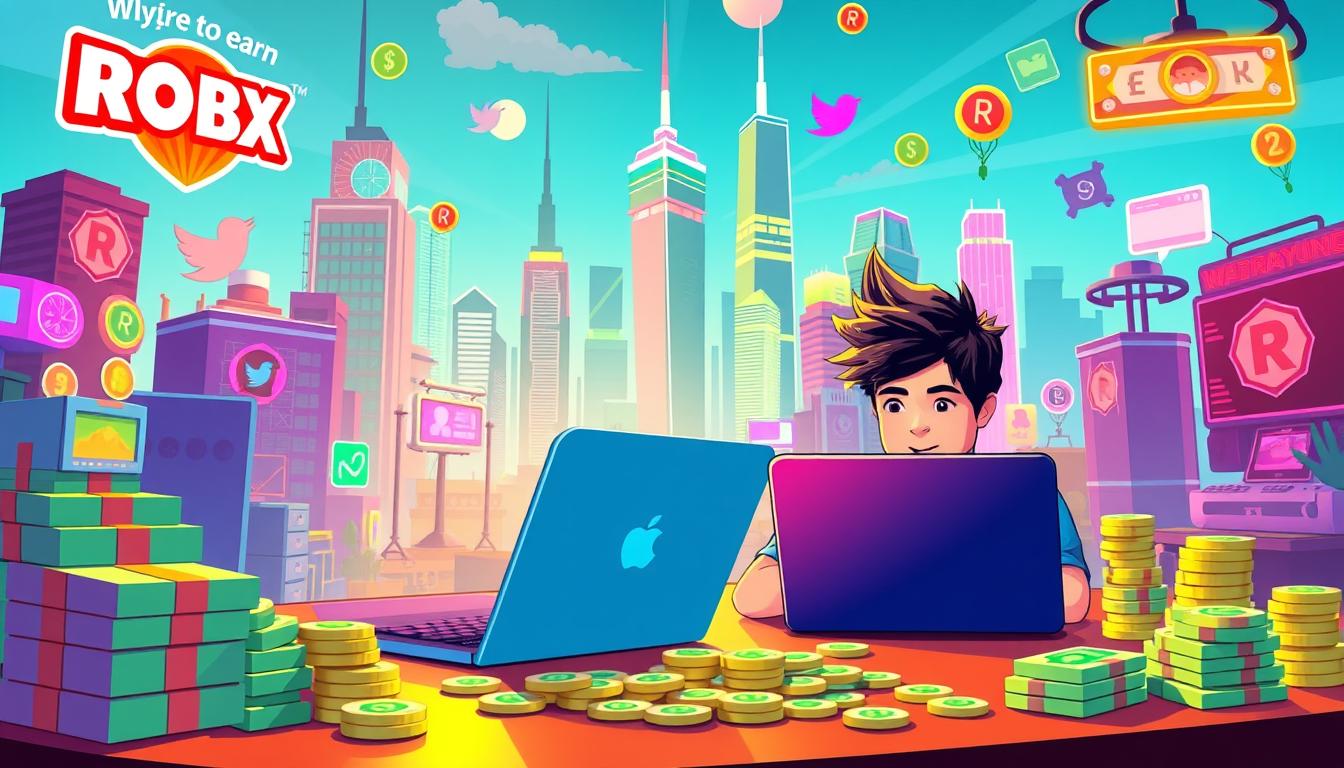Anúncios
Ever thought about playing top games on a low-end phone without losing out on graphics and speed? Mobile gaming is getting more popular, and the need for fast Android emulators for weak devices is growing. For those with low-end Android phones, the right emulator can open up new gaming worlds. It lets you play games that might be too tough for your device.
In this article, we’ll explore the fastest Android emulators for weak hardware. We’ll give you the info you need to boost your gaming on any device.
Introduction to Android Emulators
Android emulators are key tools for those wanting to try out the Android operating system on computers. They let users access Android apps on devices not made for Android. This emulator technology is great for developers and gamers, offering mobile features without needing an Android device.
Anúncios
There are many Android emulators out there, each meeting different user needs. They’re especially useful for people with low-spec hardware. These tools make it easy to test apps and improve gaming on computers.
Many emulators focus on performance, so even low-power devices can run demanding apps well. This means users get a strong platform to enjoy features usually found only on smartphones. Android emulators are a must-have in today’s digital world.

Anúncios
Why Use Android Emulators for Gaming?
Android emulators are gaining popularity among gamers. They offer a different way to play games, especially on devices that can’t handle them well. Emulators let gamers enjoy better performance than many mid-tier mobile phones.
One big plus is playing games on a PC with a bigger screen. This makes games feel more real and fun. Emulators also make it easier to play popular games and use keyboard and mouse controls.
This makes games more precise and enjoyable. The graphics on emulators are also better, making games look amazing. This is why many gamers choose emulators over playing on mobile devices.

Understanding Weak Hardware Limitations
Android users with weak processors face big problems when using demanding apps. These Android hardware limitations come from not enough processing power, small RAM, and poor graphics. These issues cause mobile performance issues, like apps freezing or crashing during important moments.
Choosing the right emulator is key when dealing with weak processors. Devices with weak processors can’t handle games that need lots of graphics power. Knowing your device’s limits helps pick emulators that work well with it. This makes gaming better and reduces frustration from hardware problems.
Features to Look for in Emulators
Choosing the right Android emulator can make a big difference in your gaming. It’s especially important for low-end devices. Look for key features that boost gaming performance and make the emulator easy to use.
Performance Optimization
Getting smooth gaming on weak hardware is key. Emulators use tricks to cut down lag and boost graphics. Look for options to adjust settings for better performance on your device.
Custom Keyboard Mapping
Custom controls are vital for better gameplay. You can change keyboard layouts to fit different games. This is great for games that need quick movements and precise actions.
Fastest Android Emulators for Weak Hardware
Looking for efficient Android emulators means focusing on those that work well on weak hardware. The fastest ones offer a great gaming experience even with limited resources. It’s important to know what to look for to pick the right emulator for your device.
Key Considerations for This Category
Checking system requirements is key when picking emulators for weak hardware. These requirements show if the emulator can run smoothly without overloading your device. Also, user reviews are crucial as they point out important performance benchmarks.
Features like custom keyboard mapping and multi-instance capabilities are also important. They improve gameplay without needing lots of resources. Think about your gaming needs and how each emulator meets them while running well on low-end devices.
Top Fastest Android Emulators for Weak Hardware
Looking for the best Android emulators for weak hardware can really boost your gaming. Two top picks offer special features for those with less powerful devices. They promise smooth gaming and use less system resources.
Introducing SmartGaga
SmartGaga is a top choice for Android emulators, especially for low-spec PCs. It ensures smooth play in popular games. It has a simple interface and settings you can tweak to fit your needs.
With SmartGaga, you get great graphics and fast processing. It doesn’t overload your hardware.
Exploring the Capabilities of LDPlayer
LDPlayer is another great Android emulator. It’s known for managing resources well, making it perfect for low-end hardware. It has customizable controls and lets you play multiple games at once.
This makes LDPlayer a top choice for those who want reliable performance without needing high-end specs.
If you want to get the most out of gaming on weaker devices, knowing how to optimize is key. Check out optimization tips to improve your experience with SmartGaga and LDPlayer.
GameLoop: A Winner for Low-End Devices
GameLoop is a top pick for gamers with less powerful devices. It’s made by Tencent and works great for games like PUBG and Call of Duty Mobile. It’s designed to make the most of what your device can do.
GameLoop shines in tough gaming situations. Players get stable connections and little lag. This means you can play without interruptions, enjoying every moment.
It also has cool features to make gaming better. You can change controls and settings to fit your style. This is great for both casual and serious gamers who want to have fun.
GameLoop is perfect for those who want to play mobile games without expensive hardware. It lets you play many popular games well. So, you can download it and enjoy great gaming on your device.
BlueStacks and Its Performance
BlueStacks is a top choice for gamers with lower-end devices. It has improved a lot over time. Now, it uses less resources, making it better for those with less powerful computers.
One cool thing about BlueStacks is that you can run many apps at once. This is great for gamers who play different games or manage accounts. It also comes with lots of apps, making it easy to find what you need.
BlueStacks lets you customize your gaming experience. You can change settings for graphics, controls, and more. These changes can make games run smoother on weaker computers.
BlueStacks is good at balancing power and ease of use. It offers fast frame rates and low latency, perfect for action games. Checking out BlueStacks’ performance on low-end hardware can help you decide if it’s worth it.
Choosing Between Bluestacks and LDPlayer
When comparing Bluestacks and LDPlayer, users notice key differences. These differences can greatly impact their gaming experience. Both emulators are popular but serve different needs and hardware levels.
Bluestacks is famous for its wide range of apps and games. It has a user-friendly interface and better graphics. It works well on high-end systems, allowing for smooth multitasking. But, it might lag on lower-end hardware.
LDPlayer, however, performs well on devices with weaker processors. Its lightweight design helps users with modest setups enjoy smoother gameplay. It’s also known for its customization options, making it a strong contender in the emulator market.
| Feature | Bluestacks | LDPlayer |
|---|---|---|
| Performance on Low-End Hardware | Moderate | High |
| User Interface | Feature-rich | Simplified |
| Customization Options | Limited | Extensive |
| Library of Supported Games | Extensive | Moderate |
| Resource Management | Heavy | Lightweight |
Choosing between Bluestacks and LDPlayer depends on your needs and hardware. Users should consider each emulator’s strengths to match their gaming style.
MEmu Play: A Solid Alternative
MEmu Play is a top choice for Android emulators. It’s known for its easy-to-use interface and customizable settings. This makes it great for gamers with less powerful devices.
Reviews show it works well with many apps and games. Knowing its good and bad points helps users decide if it’s right for them.
Pros and Cons of MEmu Play
It’s important to look at both sides of MEmu Play.
- Pros:
- It performs well with different apps
- Custom settings improve the user experience
- It lets you run many games at once
- Cons:
- Ads can interrupt your play
- Some users find it slow in certain situations
Understanding both sides helps users see if MEmu Play meets their gaming needs.
How to Optimize Performance on Your Emulator
For gamers using emulators, better performance makes games more enjoyable. Knowing what your system needs and how to use resources well is key. Follow these tips to get the most out of your emulator, even on less powerful devices.
System Requirements for High Performance
Every emulator needs specific settings to work well. Knowing these ensures your emulator runs smoothly. Important specs include:
| Emulator | Minimum RAM | Minimum Processor | Supported Operating Systems |
|---|---|---|---|
| LDPlayer | 2 GB | Intel Dual-Core | Windows 7/8/10 |
| BlueStacks | 4 GB | Intel or AMD | Windows 7/8/10 |
| MEmu Play | 2 GB | Intel Dual-Core | Windows 7/8/10 |
Matching your device’s specs with the emulator’s is crucial for a smooth gaming experience.
Best Practices for Resource Allocation
Managing system resources well can greatly improve emulator performance. Try these strategies:
- Give more RAM to the emulator for better performance.
- Close apps you don’t need to free up space.
- Use hardware acceleration if your system can handle it.
- Keep your graphics drivers up to date for better performance.
By following these emulator performance tips, you can improve your gaming experience, even on basic devices.
Security Considerations When Using Emulators
Android emulators have made gaming on low-end devices easier. But, they also bring risks. It’s crucial to understand emulator security to avoid problems.
Getting emulators from trusted sources is key to safety. Reliable developers focus on security and updates. This reduces the risk of malware and data breaches.
Be careful with permissions when using emulators. Check the permissions asked during setup. Too many permissions can be a red flag. Only allow what’s needed for the emulator to work.
In summary, knowing the risks and following best practices is important. Use verified sources and manage permissions wisely. This way, you can enjoy gaming safely with Android emulators.
Future of Android Emulators in Gaming
Mobile gaming is growing fast, leading to new trends in emulation. Cloud-based emulators are becoming popular. They let users play games without needing strong hardware, as the work is done on remote servers.
This means gamers with less powerful devices can enjoy better graphics and smoother play. Cross-platform compatibility is another big trend. It lets players move between devices easily, without losing their progress.
This makes mobile gaming more accessible to more people. Android gaming is also getting better with augmented reality (AR) and virtual reality (VR). These features make games feel more real, mixing the virtual and real worlds.
Companies are working hard to make emulators better. They’re improving how they look and work, and supporting newer games. This means gamers will get a better experience, tailored to their devices.
In short, Android emulators are set for a bright future in gaming. Thanks to new tech, games will be better and more people can play. Cloud services, cross-platform play, and next-gen gaming features will all play big roles in this change.
Conclusion
Users with weak hardware don’t have to miss out on their favorite games. By choosing the right emulator, like SmartGaga or LDPlayer, they can enjoy smooth gameplay. This is true even on devices that aren’t top-notch.
Learning about performance optimization, custom keyboard mapping, and security is key. It helps gamers make smart choices. This knowledge is crucial for a great gaming experience.
Exploring different emulators shows how important it is to know your device’s limits. Each emulator has its own strengths and weaknesses. Finding the right one is vital for better mobile gaming.
Users should match their gaming needs with their device’s specs. This way, they can get the best performance possible. It’s all about finding the right balance.
As mobile gaming keeps getting better, staying up-to-date is important. Using the right tools can make gaming more enjoyable. Even those with weaker devices can have a great time playing games.
FAQ
What are Android emulators?
Android emulators are software that lets users run Android on PCs. They’re great for developers and gamers. This way, they can use Android features without a physical device.
Why do gamers prefer using emulators?
Gamers like emulators for many reasons. They offer better performance than some mobile devices. They also support keyboard and mouse, have bigger screens, and better graphics.
How do I choose the right emulator for my low-end device?
To pick the best emulator for weak hardware, look at system requirements and user reviews. Also, check performance benchmarks and key features like custom keyboard mapping and multi-instance support.
What is performance optimization in emulators?
Performance optimization in emulators means making them run smoother and look better. It involves smart resource use, hardware acceleration, and adjusting graphics settings for your device.
Are there specific emulators that perform well on low-end devices?
Yes, some top emulators for weak hardware include SmartGaga, LDPlayer, GameLoop, BlueStacks, and MEmu Play. They’re made to work well with limited resources and offer great gaming.
What are the benefits of custom keyboard mapping?
Custom keyboard mapping lets players change controls for better gameplay. It’s great for games that need quick actions. It also fits personal preferences for smoother play.
How can I optimize the performance of my emulator?
To boost your emulator’s performance, manage system resources well. Keep drivers up to date and tweak settings for better speed. This might mean more RAM and hardware acceleration.
What security risks are associated with using Android emulators?
Emulators can be risky because they’re third-party apps. Always get them from trusted sources. Be careful with permissions to avoid data leaks and other security issues.
What future advancements can we expect in Android emulators?
We might see cloud-based emulators and better cross-platform support soon. There could also be more AR/VR support. These changes will make emulators even better for gaming.




